Lighting for your home office
5 tips for perfect home office lighting 10048-sm-snow, 10051-lg-coral, 10015-sm-fog, 10030-sm-carbon, 10053-sm-snow, 10062-md-forest, 10064-cm-carbon, 10065-sm-carbon, 10068-md-stone, 10016-sm-snow
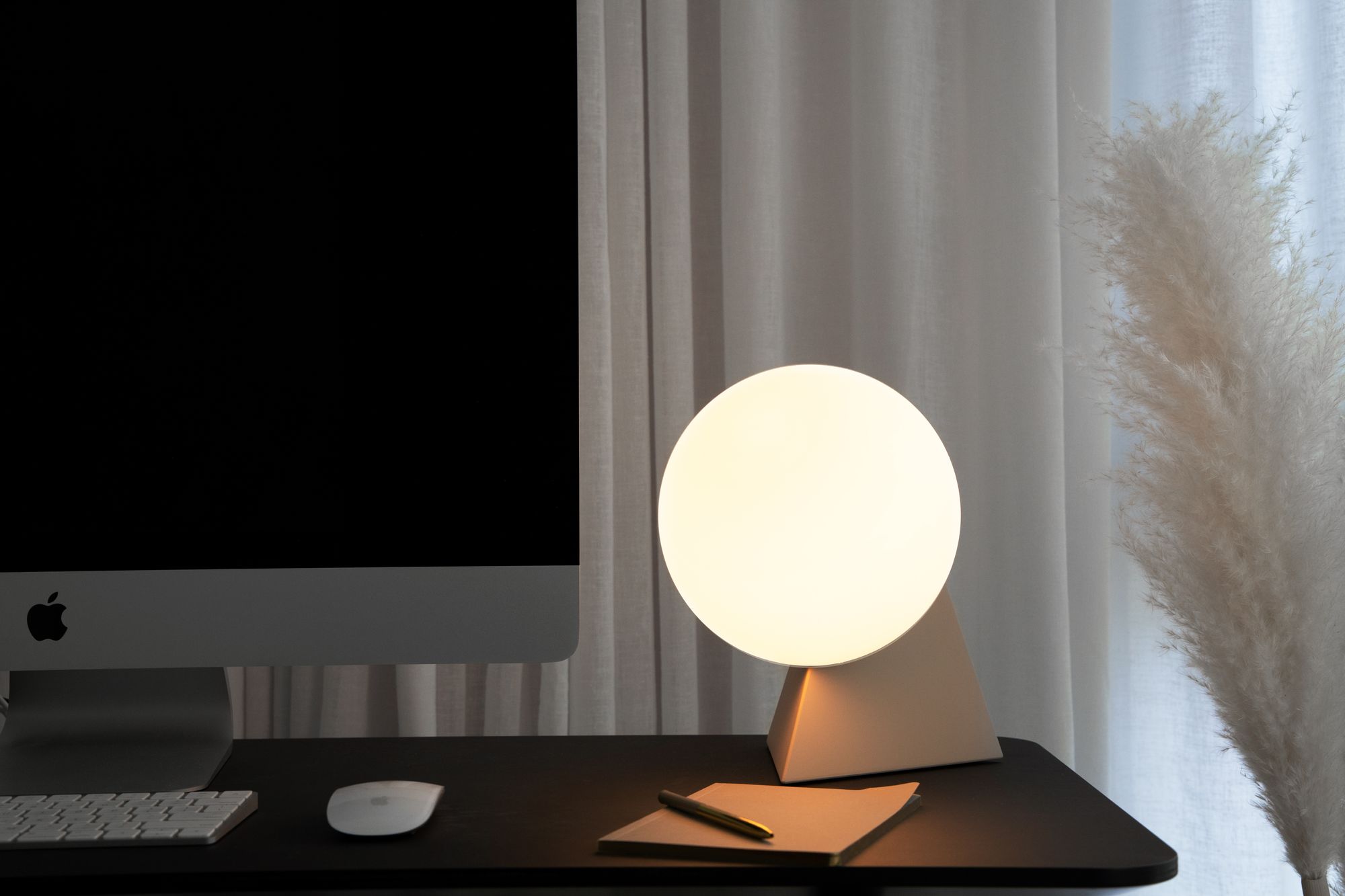

With more of us working from home than ever before, it's essential to establish healthy, effective lighting within our workspace. Whether your home office is the sofa in your living room, a desk in your bedroom, or standing at the kitchen table, the right lighting can improve productivity and create a more enjoyable post-work evening. Bad lighting can negatively affect eye health, hurt your head, harm your sleep and interrupt your concentration. Follow below for five tips to perfect lighting in your home office, no matter where you are working or what you are working on!
1. Get rid of bad bulbs
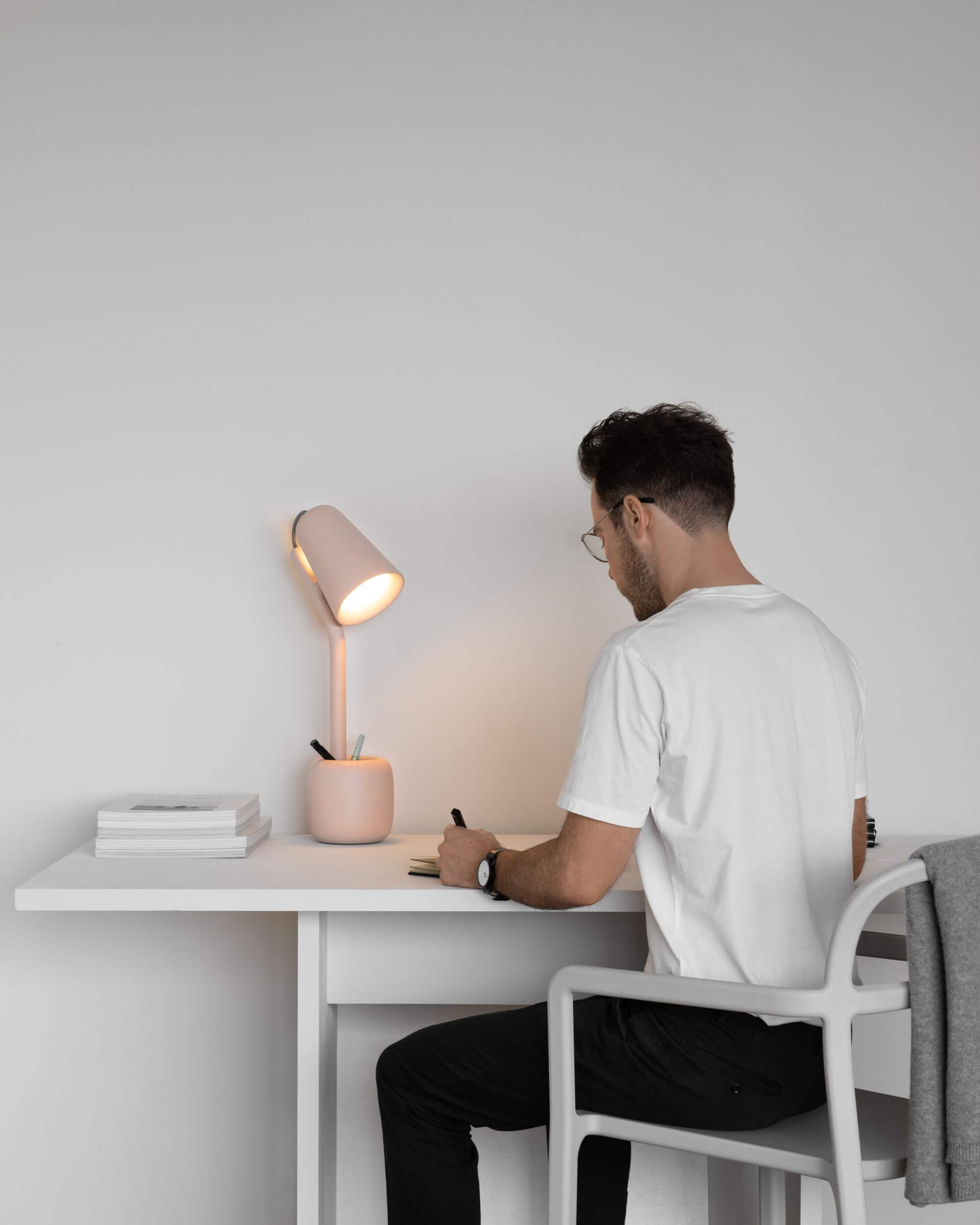
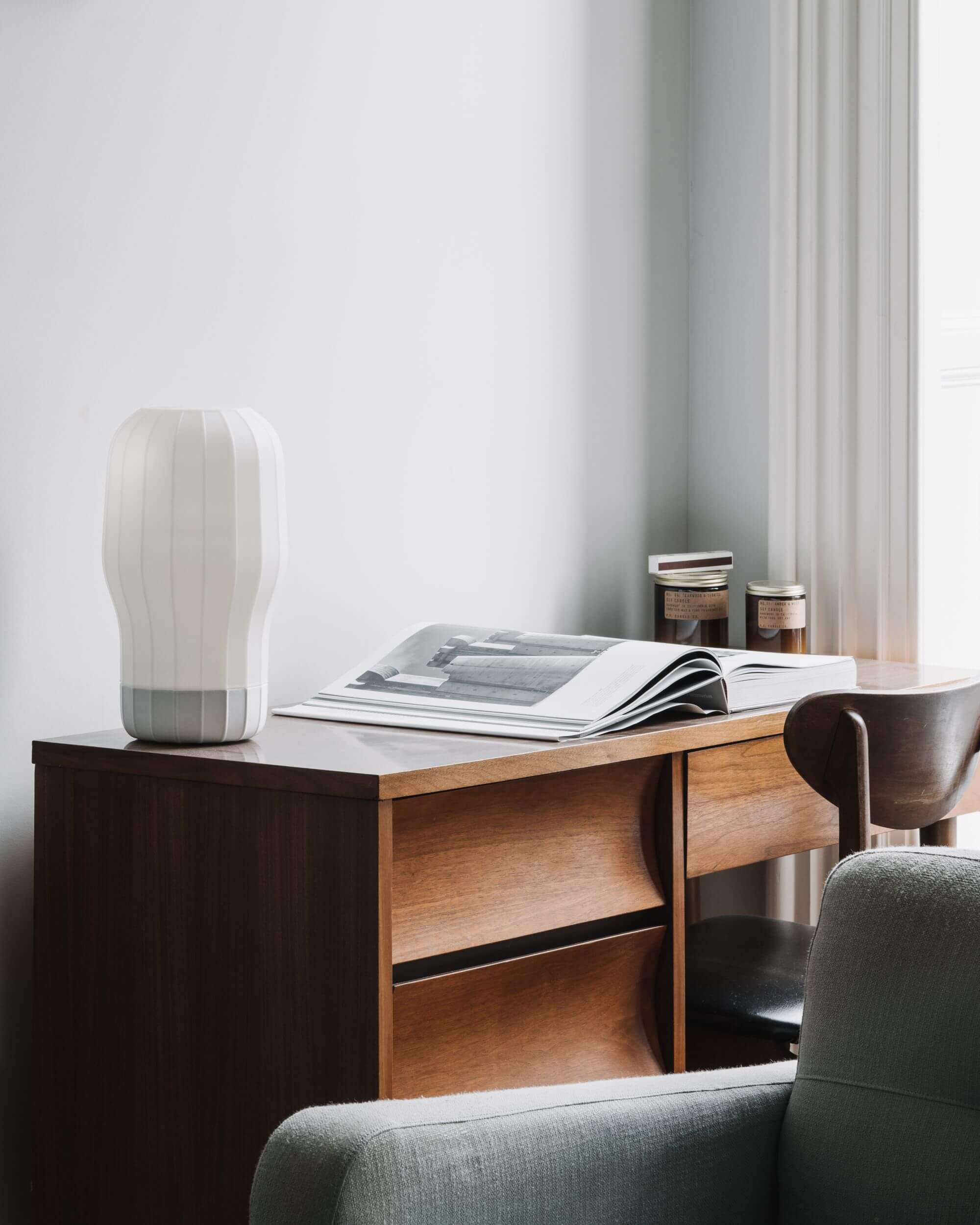
Suyo Table Light by Mckay Nilson | Blimp Table Light by Chris Grannenberg
Switch out halogen or fluorescent light bulbs for gentler, cooler LED bulbs. Fluorescent lights emit more blue light than is typically comfortable. Blue light can interrupt sleep, so if you are planning to work late into the night, fluorescent bulbs are the wrong choice for your home office. They also may emit harmful radiation if placed too close to the user (less than a foot or two feet away). Fluorescent lights are also considered by many to be too harsh and unflattering for long workdays. Recent studies have also found that fluorescent lights can allow higher than acceptable concentrations of ultraviolet (UV) light through small defects left over from manufacturing. Overexposure to UV light can cause damage to the skin and eyes.
Halogen bulbs should be avoided because they burn hot, which can lead to fires in the home and can also make users uncomfortable. Both fire danger and discomfort to the user are especially of concern when the bulbs are placed in task lights. This is because task lights are typically placed at the edge of a table or desk and can easily be knocked over. Halogen bulbs have actually been banned across Europe because of the dangers they pose to homes and to the greater environment.
They are also usually placed very close to the user’s face or hands so as to better illuminate whatever they are working on. This emits an unpleasant heat across the user’s skin that can add unwanted pressure during the workday. As research has found that “heat causes an increase in stress hormones,” it is probably best to switch out hot halogen bulbs for LEDs across your home office. LEDs are also preferable because they offer a wide range of color temperature options, are more energy efficient and have been proven to positively impact worker performance, mood and sleep! Thankfully, all of Gantri’s lights, from floor lights to table lights and wall lights, are outfitted with dimmable LED bulbs.
2. Position your desk near a natural light source
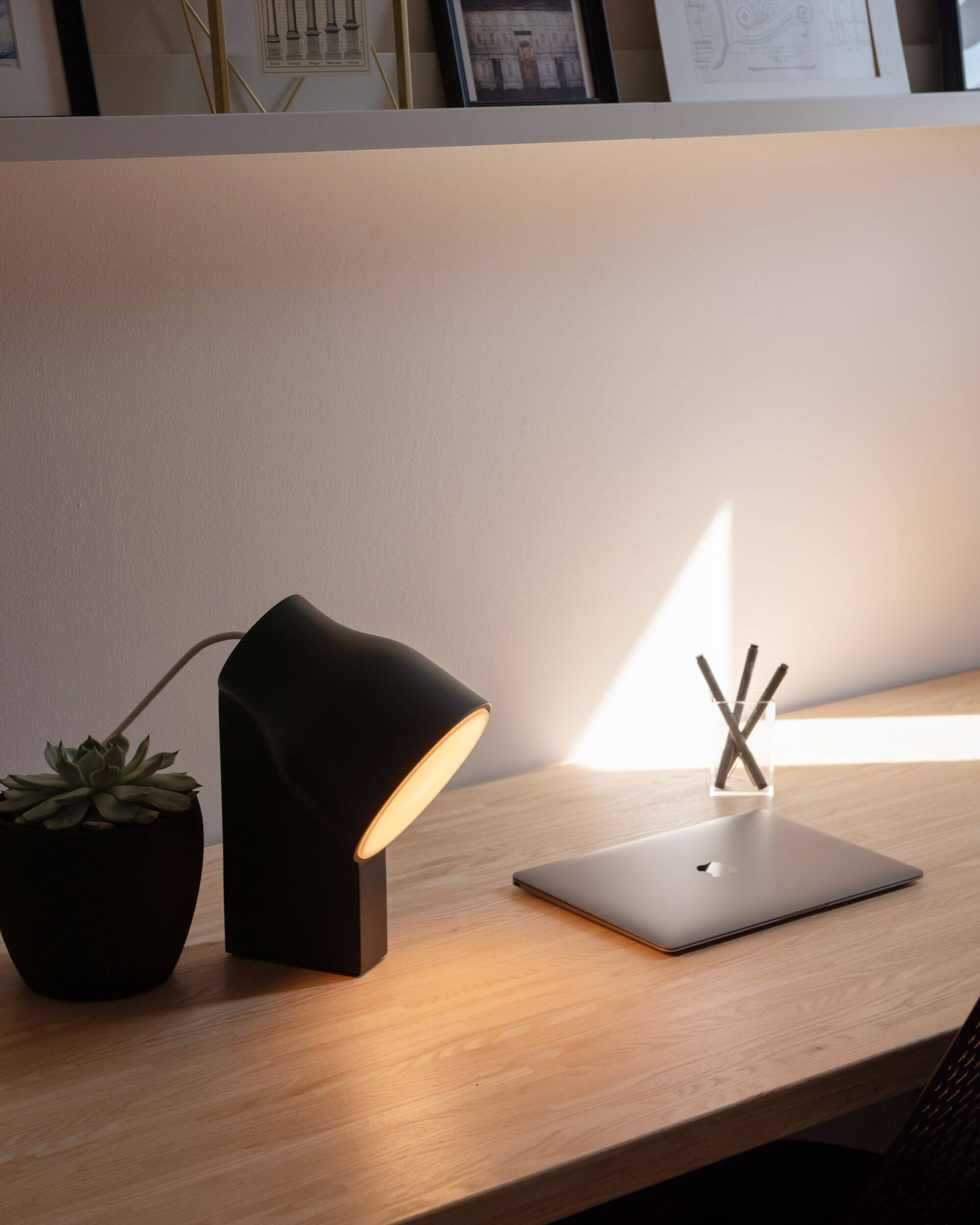
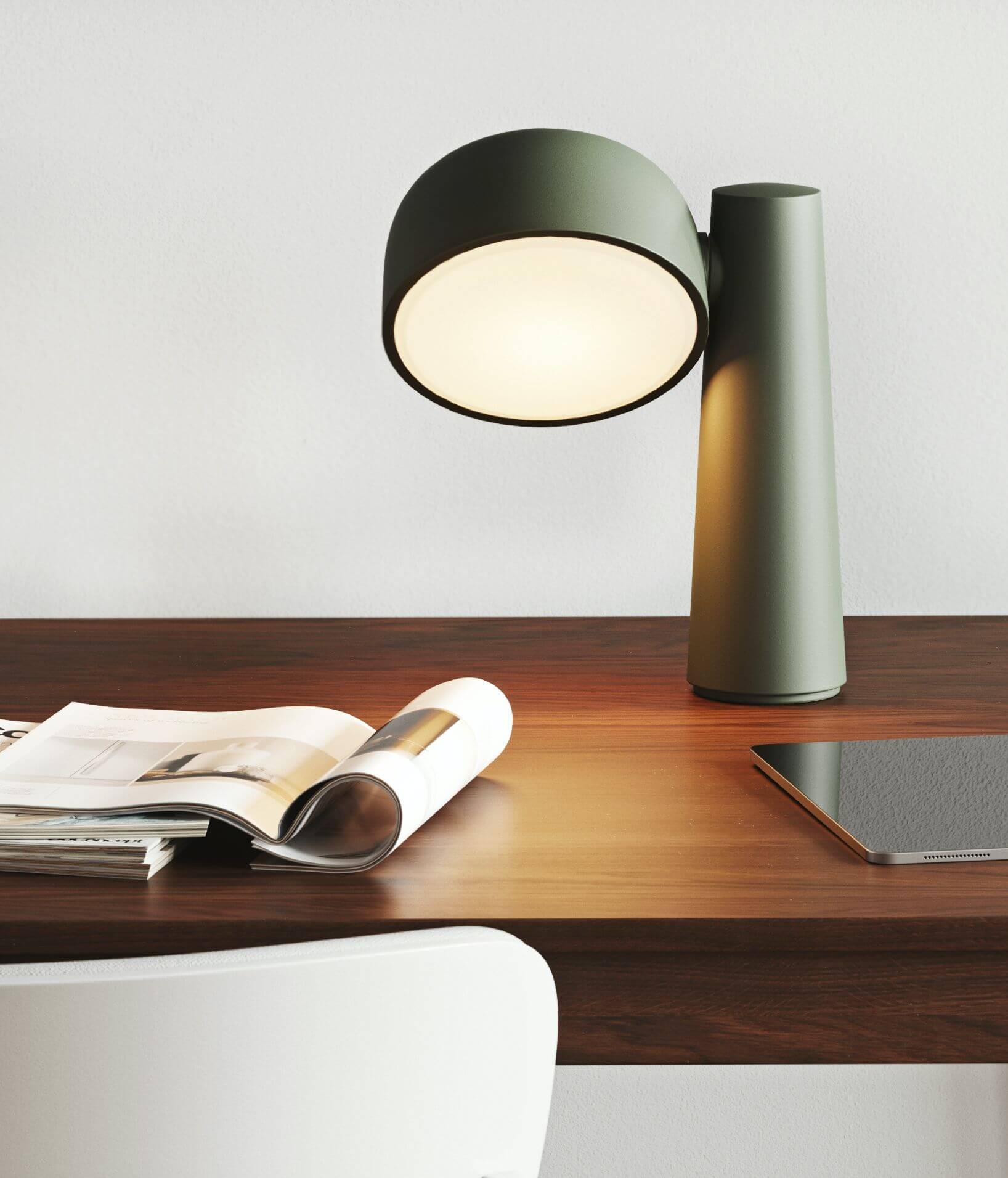
Carve Table Light and Gio Task Light by Ammunition
If possible, move your desk or workspace nearer to a window. Even if the window does not let in direct, natural light -- e.g. if it faces north or south rather than east or west -- being exposed to natural light throughout the day will likely improve your mood and performance. This is because natural light, somewhat similarly to the light from LED bulbs, is essential for maintaining a consistently and properly functioning circadian rhythm.
It is for this reason that people -- especially teenagers -- having difficulty getting consistently high-quality sleep are advised to have breakfast in early-morning sunlight. Working in sunlight can kick a person’s biological clock back into working order, making them less drowsy and more productive during the day and making falling asleep easier at night.
3. Layer your lighting
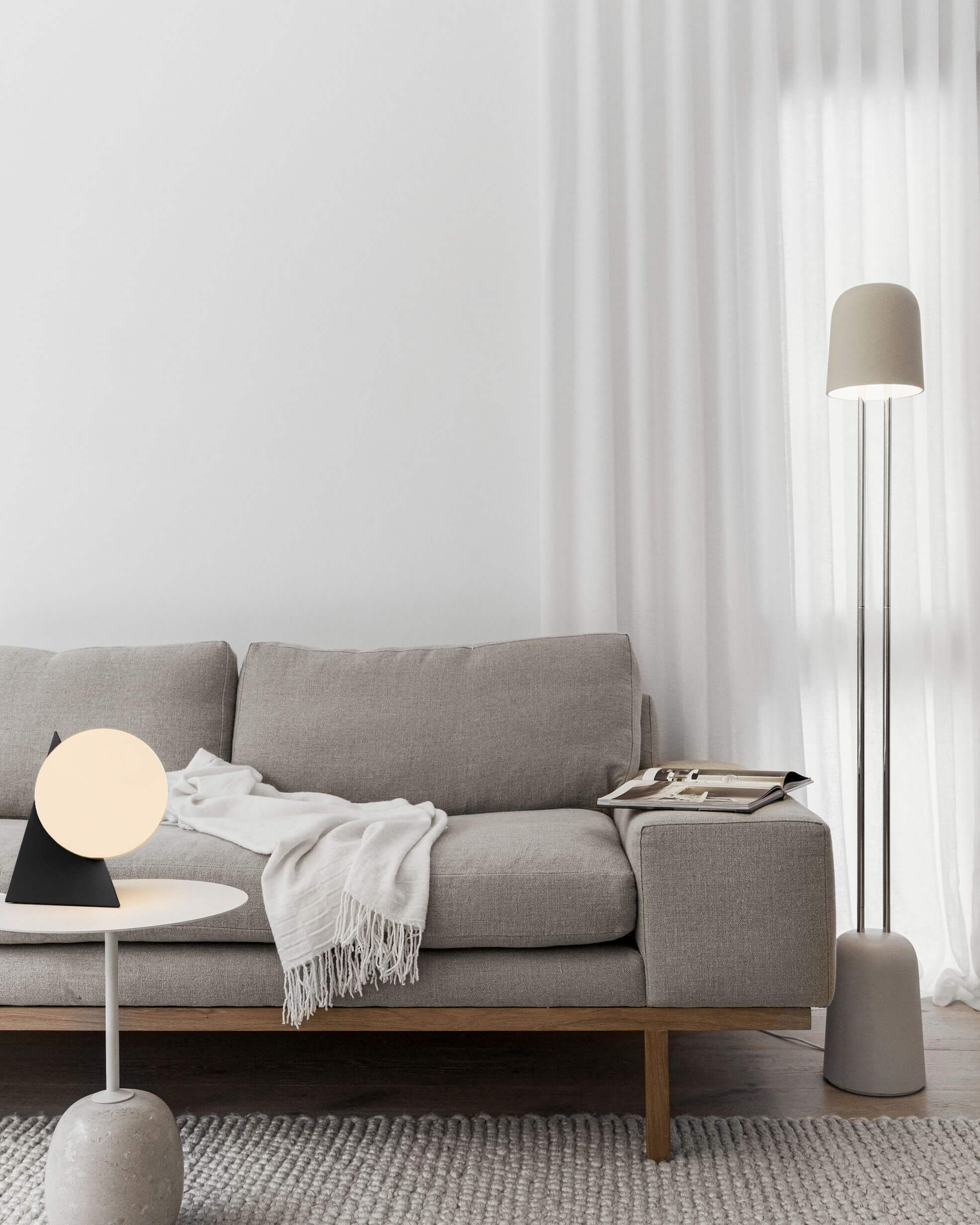
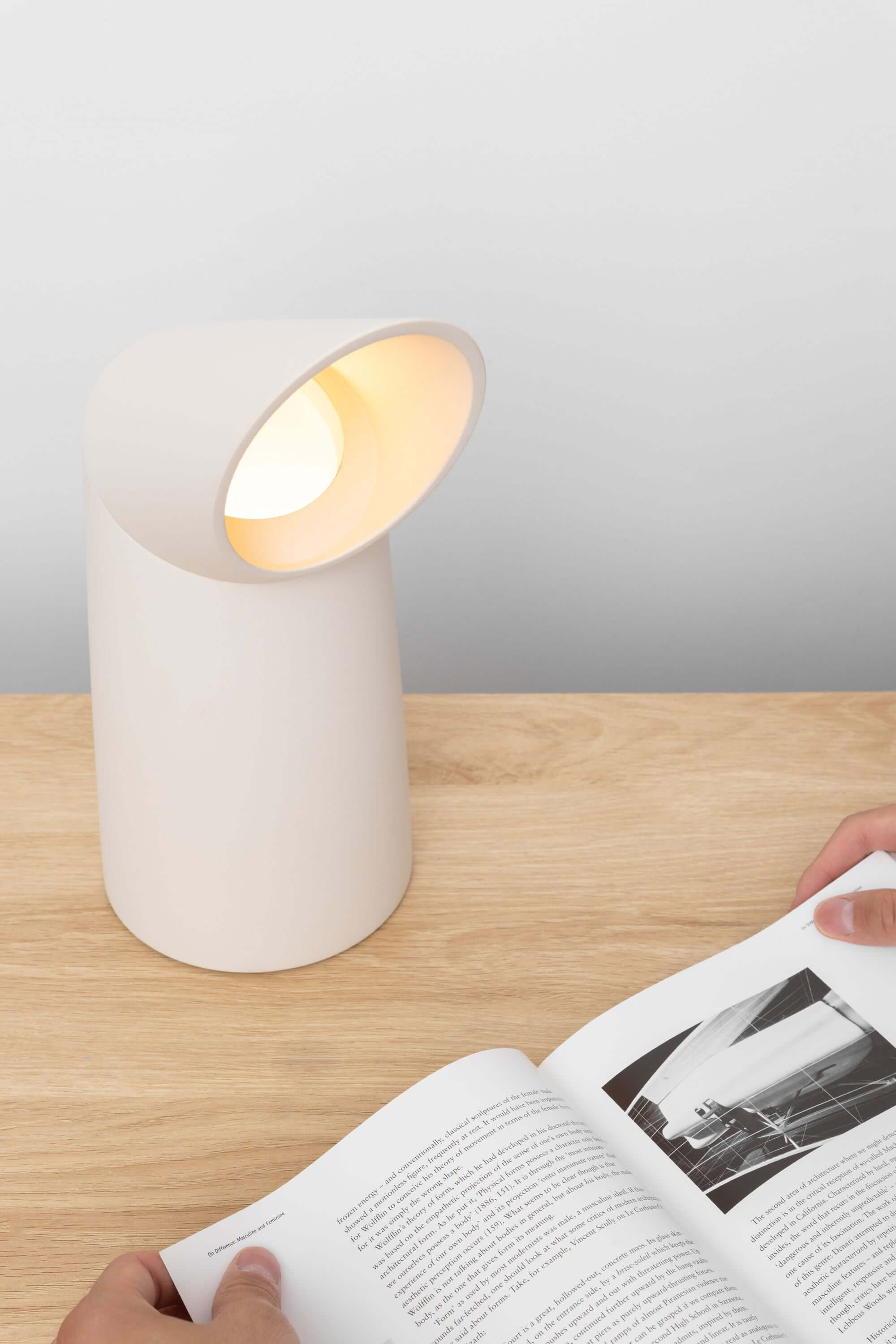
Pyrasphere Table Light by Louis Filosa | Gio Floor Light by Ammuniton | Clara Vertigo Table Light by Lorenzo Cartasegna
Avoid settling for less light when your home office could be filled with gentle, effective light throughout. Layer Floor Lights with Table Lights and Wall Lights to make sure every inch of the room you are working in is well lit. Proper lighting in every corner and across every surface will reduce glare, eliminate strain on your eyes from harsh light sources and offer a transition as daylight fades.
Layered lighting is especially important in dual-use rooms like living rooms or kitchens that function as mock-offices during the day and a place to come together at night. Layered lighting signals a change in the day that mimics changes in natural sunlight. Turning off your Table Light at the end of the work day while the Floor Light remains on signals that your eight-hour shift has ended and the time to relax has begun.
4. Consider the room’s size
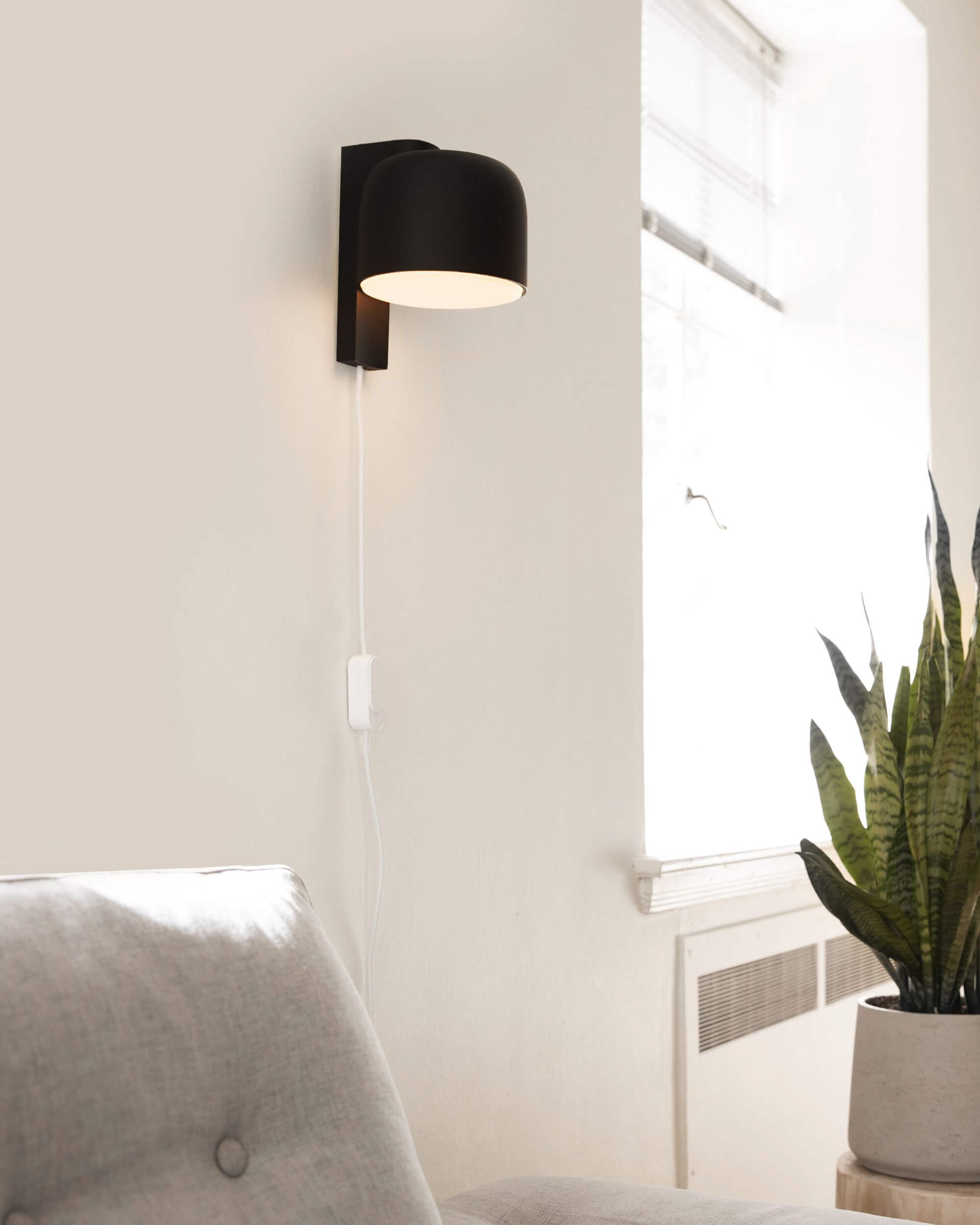
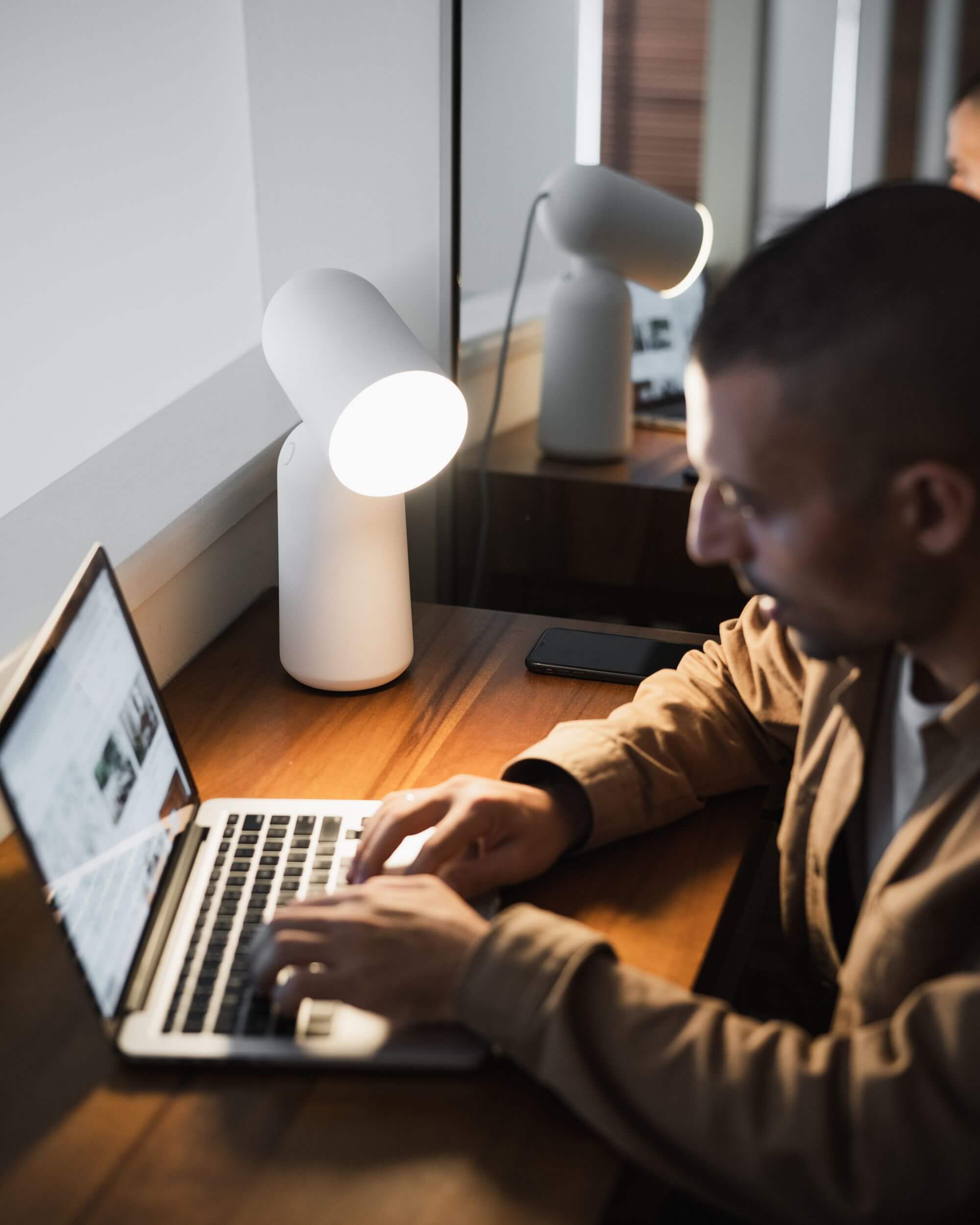
Gio Wall Light by Ammunition | Buddy Table Light by Mona Sharma
If the room you are using as a home office is rather large -- like a living room or other entertainment space -- be sure to light all areas that will be used throughout the day. This will make sure you are not crammed into a tiny corner of light while the rest of the room plunges into darkness as the day comes to a close. This will also make the transitions mentioned above easier as you move throughout the space -- maybe from your desk to a filing cabinet in a home office or from the couch to a reading nook in the living room.
Be sure to also accommodate a smaller space with your lighting. If your bedroom is barely big enough for your bed, a tiny desk and a single armoire, avoid wasting valuable desk real estate by choosing a Wall Light instead of a traditional Table Light. The Gio Wall Light above is a perfect choice because it directs the light towards your work. Consider floating storage too in order to maximize the amount of workspace you have on your small desk and to avoid a pileup of papers on the bed.
5. Make everything dimmable
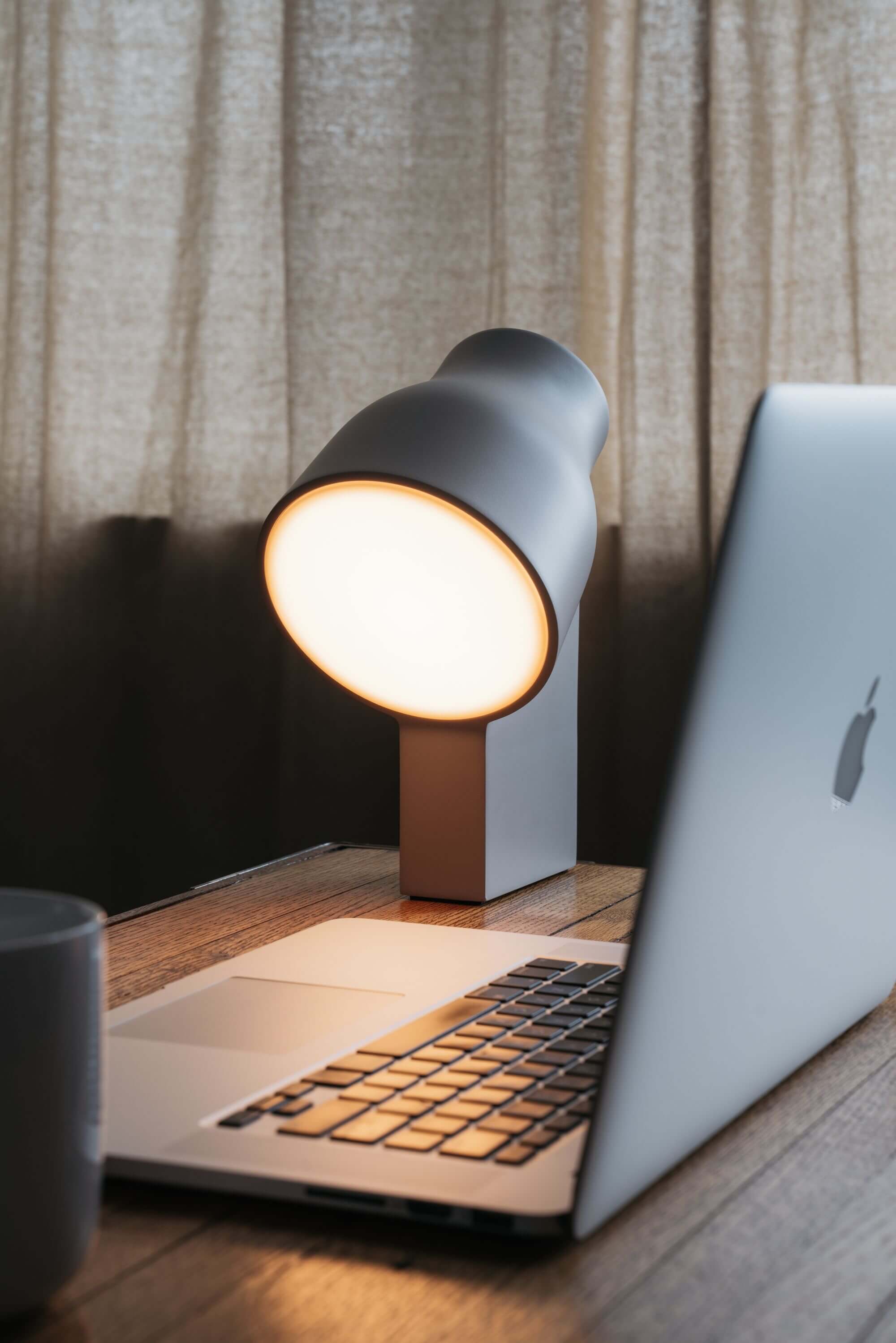
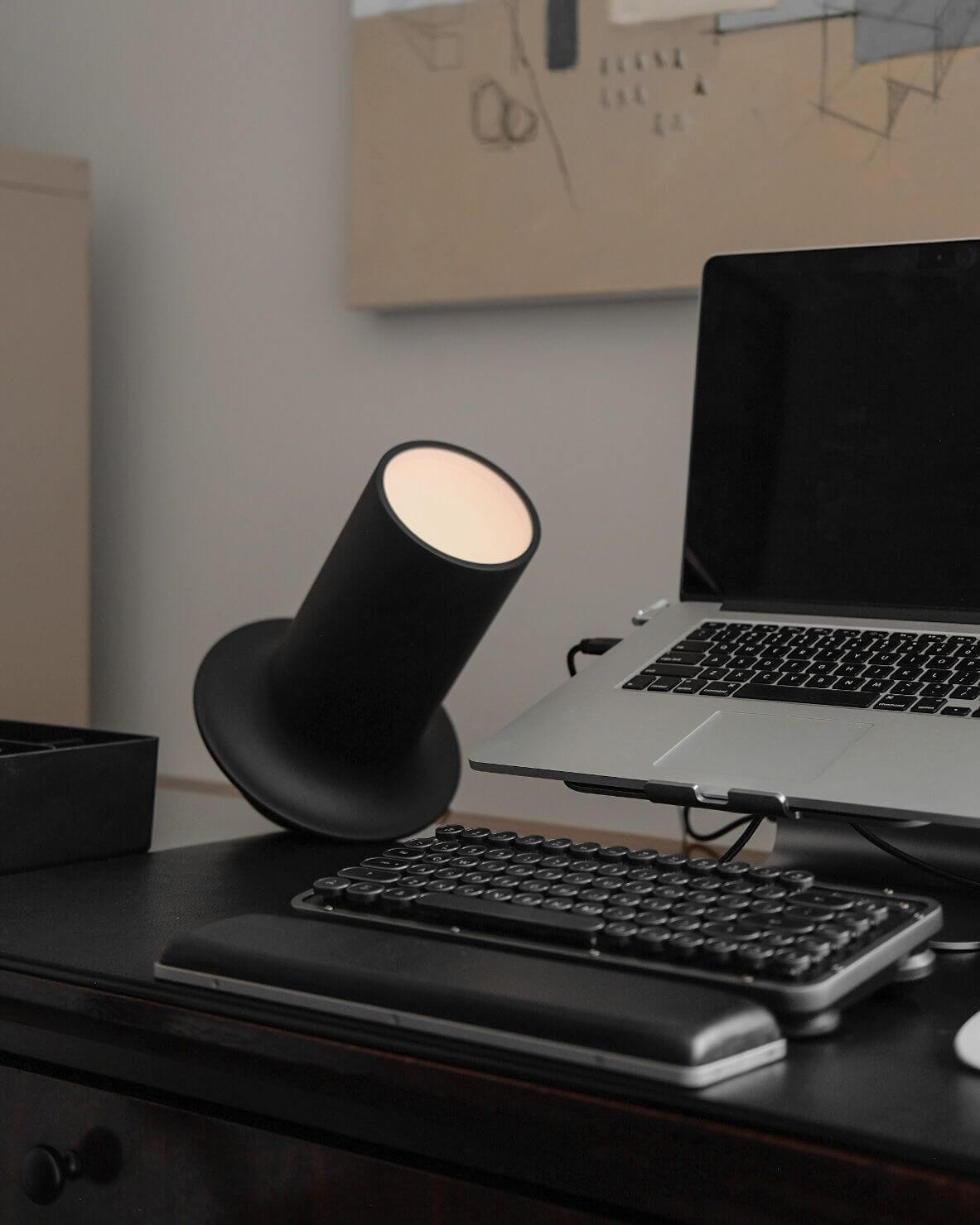
Carve Table Light by Ammunition | Orbit Table Light by Gonzalo Baxter
Similarly to layered lighting, dimmable lights allow you to adjust the intensity of light throughout the day as it is needed. This prevents your eyes from being overwhelmed with intense, directed task lighting at night when softer light is more appropriate. It also allows you to give your eyes a break without turning the light off completely and causing too immediate a shift.
Dimmable lighting is also more environmentally- and wallet-friendly because the output from the light can be controlled based on need rather than having only two states -- on and off. Dimmable light allows for more versatility in a workspace when it does not exist in its own home office -- e.g. in a living room, playroom or breakfast nook instead. Dimmable bulbs mean that Wall Lights, Table Lights or Floor Lights can be used as task lighting or as ambient lighting.
Healthy home office lighting is surprisingly easy to achieve regardless of which room you are working in. Replacing halogen and fluorescent bulbs with energy-efficient, eco-conscious LEDs like those included in every Gantri light will make your home office safer. Including natural light will reprogram your body’s circadian rhythm and improve your sleep. Installing a mix of Gantri’s Floor Lights, Wall Lights and Table Lights will protect your eyes from unpleasantly harsh transitions. Considering the size of your office will help you make appropriate lighting decisions that will light the space effectively and adding dimmers to each light will help you shift from work to relaxation with ease.

